Diets
- AIDS Diet
- Athletes's Diet
- Atkins Diet
- Bodybuilding Diet
- Breast Feeding Diet
- Cabbage Soup
- Cancer Patient's Diet
- Cardiac Patient's Diet
- Pediatric Diet
- Diabetes Diet
- Diet Plan
- Diet Programs
- Fitness Diet
- Cardiac Patients
- Kidney Disease Diet
- Low Calorie Diet
- Hypertension Diet
- Pregnancy Diet
- High Protein Diet
- Sports Diet
- Vegetarians Diet
- Weight Gain
- Fasting Diet
- Calorie Diets
- Celebrity Workout
- Diet for Gout
- Herbal Diets
- Zone Diet
- Herbal Phentermine
- South Beach Diet
- High Fiber
- Low Carb Diets
- Low Carb Dieting
- Low Carb Dieter Eat
- Atkins Low Carb Diet
- Atkins Low Carb Diet Program
- Monounsaturated Fats
- Food Choices Low Carb Meals
- Shopping Right Supplements
- Top 3 questions for Low Carb Dieting
- Better Food Choices
- Fluorosis
- Wu Yi Tea
- Ultra Lean Green Tea
- Acai Berry Power 500
Diet for Kidney Disease
The normal human body has two kidneys, located on either side of the spine, just below the ribcage. Each kidney is about the size of your fist and weighs 1/4 pound. The shape is similar to that of a kidney bean. The kidneys perform several vital functions necessary for maintaining life.
Four major functions of the Kidneys
- Elimination of waste products through an internal blood filtering system
- Regulation of blood formation and red blood cell production
- Regulation of blood pressure
- Control of the body's delicate chemical and fluid balance

The kidneys maintain body fluid levels by excreting fluids (and sodium) when the body has an excess amount of fluid and conserve fluid when the body fluid is low (dehydration). The kidneys assist in the regulation of blood pressure through fluid regulation and the secretion of a hormone known as renin. The kidney produces other chemical factors that also aid in the regulation of the body's fluid and electrolyte balance. The kidneys filter the entire blood supply every two minutes in order to perform their major task of waste removal and elimination into the urine.
As blood enters the kidney, it is carried into functional units called nephrons. A nephron is made up of a cluster of small blood vessels called a glomerulus, which is attached to a tubule. There are about one million nephrons in each kidney. Combined, both kidneys have about 140 miles of tubes and filters. The filtration process that separates waste products from the blood takes place at the glomerulus inside each nephron. A disease process which affects the function of the glomerulus is known as glomerulonephritis. If for some reason one kidney stops working, the other can easily perform the function of both.
Kidney Failure
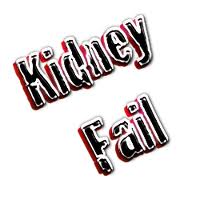
There are two types of kidney failure: acute and chronic. Acute kidney failure is often a temporary decline in kidney function that can most often be corrected. Chronic kidney failure is a permanent condition. Once it occurs, the kidneys cannot be made to function again. Treatment is aimed at preserving as much of the kidney function as possible. End stage kidney disease requires kidney dialysis (kidney machine). The most common causes of chronic kidney failure are hypertension and diabetes.
Diet is an essential part of Treatment of Kidney Disease
The human body is remarkably equipped to eliminate substances it does not need. The foods and fluids we consume are metabolized for energy and resultant waste products are removed by the kidneys. For this reason, diet plays an important role in the treatment of kidney disease.
A person with kidney disease requiring diet modification must change one's diet by discontinuing the use of some foods and adjusting the amount of others. Foods that produce waste products that the failing kidneys cannot handle are protein, sodium, potassium, and phosphorus.
General Dietary Restrictions
When the kidneys are not working normally, waste products (urea), the result of what we eat, build up in the blood stream. Kidney dialysis (kidney machine) removes part of these byproducts temporarily until, once again, they reaccumulate. It is important for both the patient who is dependent upon dialysis or suffering from compromised kidney function to follow a careful prescribed diet. Although each diet is individualized, typical dietary restrictions will be placed on total calories, fluids, protein, sodium, phosphorus, and potassium. Supplemental calcium is required by many of these patients.

Calories: Calories, a measurement of the energy value of food, are an essential part of any diet. The number of calories you eat affects your ability to gain and lose weight. An inadequate number of calories will burn protein derived not only from the protein that you eat, but also from the body's own muscle stores. A well balanced diet must give your body both the required amount of protein for tissue growth and repair as well as enough calories for your energy needs. Excess calories and protein will put an unnecessary strain on the diseased kidney.
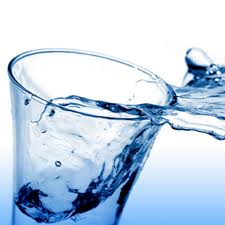
Fluids: When the kidneys are no longer functioning efficiently, fluids accumulate in the body. Fluid overload can contribute to shortness of breath, hypertension, and swelling of the hands, legs, and feet. This condition can lead to congestive heart failure, and excess build up of fluid in the lungs. Remember, fluids are defined as all liquids, including all foods that melt to a liquid at room temperature. Since fluid overload is dangerous, it is important to limit your intake. Keeping track of your weight daily can allow you to pick up on a trend of fluid retention with weight gain.
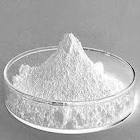
Sodium: The balance of fluid in our body is regulated in part by the mineral sodium. When sodium is combined with chloride, it forms table salt. Excessive amounts of salt in the diet result in the retention of too much water. This may cause a sudden increase in weight, swelling of the tissues and joints, high blood pressure, shortness of breath, and congestive heart failure. Most foods contain sodium either naturally or as additives. High sodium foods include processed and smoked meats, foods with salt toppings such as chips or nuts, sauces, and prepared and canned foods.
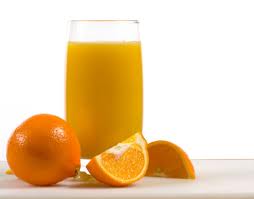
Potassium: The mineral potassium plays a key role in the normal functioning of the muscles and nerves as well as in regulating the pumping action of the heart. Muscle weakness and cardiac arrhythmias may be the result of high levels of potassium in the blood. Since the heart is a muscle, a build up of potassium may lead to sudden death (cardiac standstill). Potassium is found in almost all foods and in salt substitutes. Your potassium level should be monitored closely.
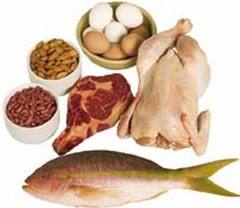
Protein: The body utilizes protein for the growth and repair of tissues. Normally, protein byproducts are excreted from the body in the urine. When kidney function is impaired, the end product of protein metabolism, urea, accumulates in the blood stream. The best kind of protein to eat is that which is used most efficiently by the body, leaving the least amount of protein wastes behind. These proteins are referred to as complete, or high quality proteins that contain all the essential amino acids. High quality proteins include eggs, meat, fish, fowl, and some dairy products. Low quality proteins are found in foods such as vegetables, fruits, breads, cereals, and starches.

Calcium and Phosphorus: The balance of calcium and phosphorus in the body is crucial to the maintenance of healthy bones, muscles, and nerves. Renal disease contributes to the imbalance of these important minerals. Too much phosphorus may cause the bones to become brittle and break easily. This results from the body's removal of calcium in the bones to balance the excess phosphorus. Foods high in phosphorus are usually also high in potassium (another mineral that must be restricted). Phosphorus rich foods are dairy products, meats, shellfish, bran, whole grain products, beans, nuts, and chocolate. Calcium is found in most dairy products, but will need to be supplemented (OS-CAL) in most cases.
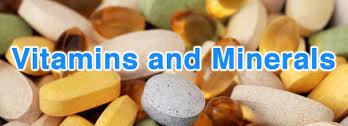
Vitamins and Minerals: Vitamin and mineral supplements are frequently needed by the renal patient since dietary restrictions may prevent the patient from receiving all the needed nutrients necessary for a healthy and balanced diet. Kidney dialysis can also remove vitamins from the blood. Vitamin supplements should only be prescribed by a physician in patients with kidney disease.
